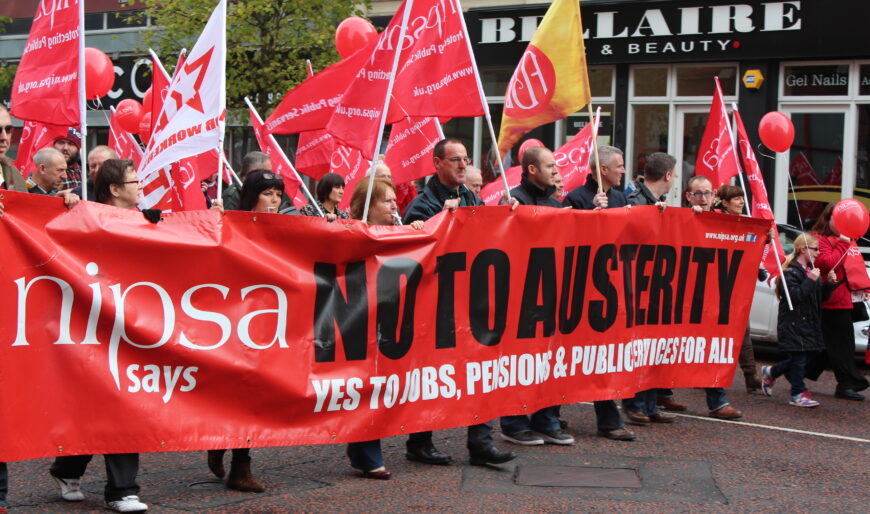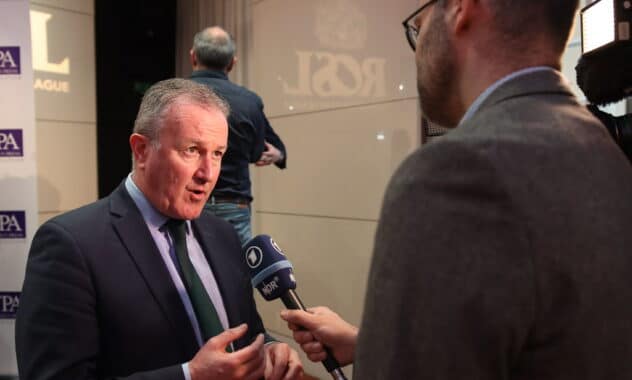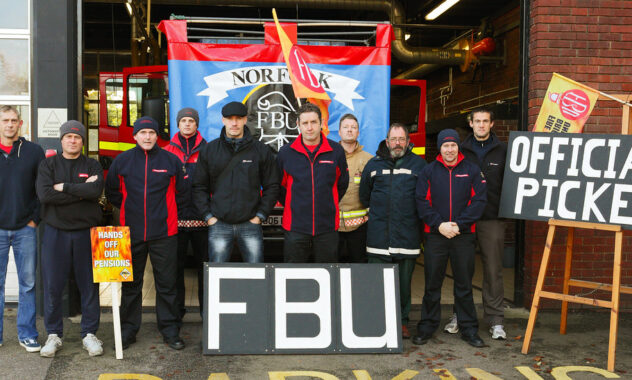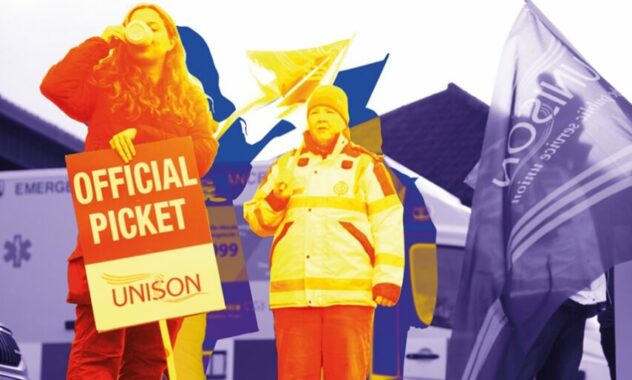Minimum service strike law ‘should apply to Northern Ireland’, says Buckland
Robert Buckland, chair of the Northern Ireland Affairs Committee, said the legislation would help those who are in "dire need" to access services.

A Conservative MP, Robert Buckland, has said he believes minimum service levels legislation should be introduced in Northern Ireland, as thousands of public service workers are due to go on strike on Thursday. Buckland is chair of the Northern Ireland Affairs Committee.
In July, the UK government introduced the Strikes (Minimum Service Levels) Act 2023. The legislation means that during a strike a “minimum service” must be provided across a number of sectors including health, education and transport. The legislation does not currently apply to Northern Ireland.
However, Robert Buckland said:
“My personal view is that minimum service levels guarantee that those in greatest need, whether it be through health emergency or other dire need, will get the service that they deserve. I think that this is not only in the interest of the people we serve but of the trade unions themselves. It will be a devolved matter for the politicians in Northern Ireland.”
Tens of thousands of workers from across the public sector, including teachers, civil servants and bus and train drivers, are walking out on Thursday over pay. Unions have billed it as the biggest strike in Northern Ireland’s history.
Carmel Gates, general secretary of the Northern Ireland Public Service Alliance (Nipsa), said trade unions would fight the introduction of such legislation.
“It is an affront to democracy to curb trade unions and the anti-union legislation that already exists in the UK is the worst of any state worldwide that calls itself a democracy.
The current wave of action taken by trade unions is in response to the sanctions imposed by a Tory secretary of state and is in defence of public services.
It is the Tories and their ilk who are wrecking services as they would love to see public services privatised so that they could profit from it. If strikes are becoming more common that means services are under more attack. Rather than saying we should curb trade unions’ ability to strike we should challenge what the government is doing to force workers onto picket lines.”
Unite’s deputy regional secretary, Davy Thompson, said minimum service levels are
“the most invidious example of knee jerk legislating this country has seen in a long time. They won’t work, won’t resolve disputes, will harden attitudes, are likely unlawful.”
Patrick Corrigan, Northern Ireland Programme Director of Amnesty International UK, said:
“The idea that these draconian restrictions to the right to strike should be extended to Northern Ireland is alarming. The rights to join a trade union and withdraw one’s labour through strike action are fundamental human rights.
The legislation ignores key safeguards that protect workers’ rights under international law. It gives ministers sweeping powers to impose minimum service levels after whatever consultations they see fit, rather than requiring them to negotiate alongside unions and employers.
This anti-trade union law has been just one of numerous examples of the Government’s drive to erode human rights in the UK. Thankfully, this is a devolved matter in Northern Ireland and the legislation does not apply and should never be introduced here by our politicians.”
A Northern Ireland Office spokesperson said:
“Trade union relations and labour relations are a devolved matter. It remains the government’s top priority to facilitate the return of the Northern Ireland Executive and a fully functioning assembly, so these important issues can be addressed by those elected to do so.”







